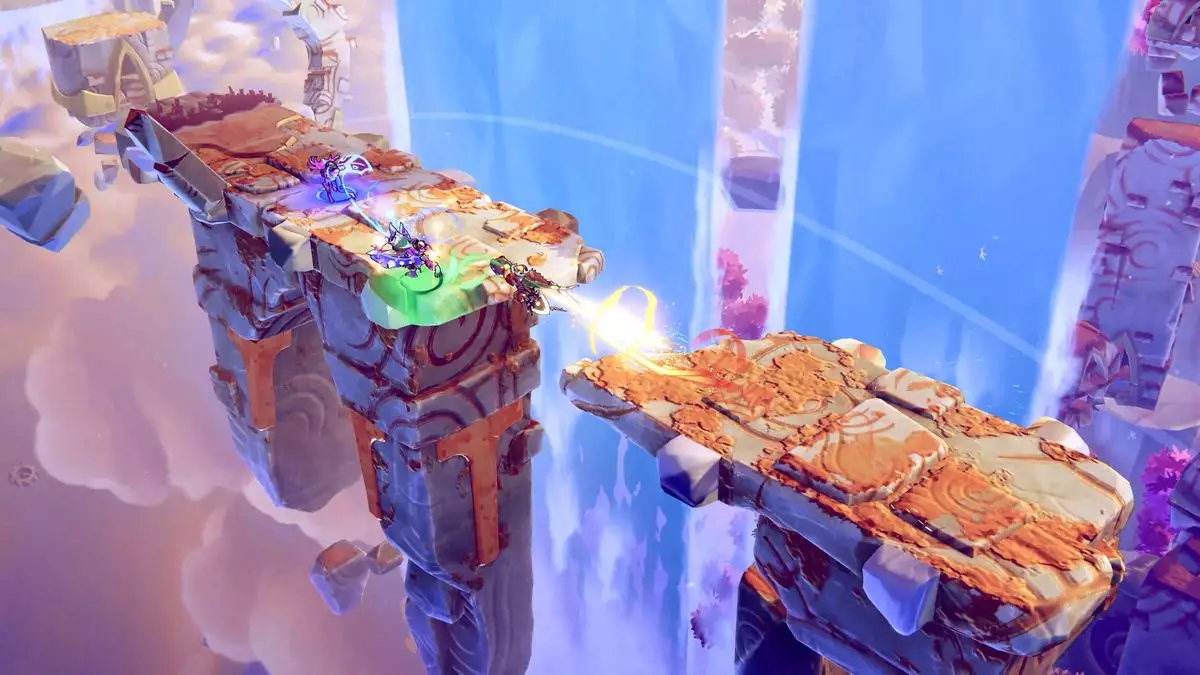In recent years, the gaming industry has seen a significant shift toward early access models, particularly in the realm of indie game development. Titles like *Dead Cells* have set a precedent for harnessing player feedback to refine gameplay and enhance the overall player experience. The developers at Motion Twin, the studio behind *Dead Cells*, are venturing into early access again with their upcoming title *Windblown*. This strategic decision underscores the vital role that player input plays in shaping a game to create a captivating experience. By engaging players early in development, developers like Motion Twin are more equipped to address concerns and make informed design choices that resonate well with their audience.
According to Thomas Vasseur, a developer at Motion Twin, the continuous dialogue with players is fundamental to crafting compelling games. The studio actively seeks feedback as they believe that players are instrumental in the development process. This philosophy was echoed by fellow developer Yannick Berthier, who detailed how closed alpha testing had already yielded invaluable insights before *Windblown’s* official Steam early access release on October 24. A small group of 200 to 300 players participated in this beta stage, providing significant feedback which influenced a wide array of aspects—from gameplay mechanics to the very feel of the weapons. Such early engagement not only involves the community but also enhances the game’s richness by integrating player-derived ideas.
This responsiveness illustrates a broader trend in game development where community contributions become a core component of the creative process. Rather than viewing players merely as consumers, developers are embracing them as co-creators, which can lead to a stronger game that aligns closely with what the community desires.
The Double-Edged Sword of Early Access
Despite the advantages of engaging with players during the early development stages, the model isn’t universally recommended to all teams. Vasseur highlights that the effectiveness of early access varies significantly based on the nature of the game. For games that rely heavily on replay value, such as roguelites, early access can prove beneficial. The iterative gameplay inherent in such titles allows for constant updates and content additions without significantly disrupting game balance. However, for genres like narrative-driven games or Metroidvanias, the situation becomes more complex. A change to a character’s moveset in a Metroidvania, for example, necessitates extensive reworking of level design—a challenge that can complicate the feedback integration process.
Therefore, developers are urged to carefully consider whether early access is appropriate for their particular game’s design and intended play experience. It’s not a one-size-fits-all solution, and the consequences of player feedback may not always align with the vision a developer has for their title.
The modular approach to game design stands out as a game-changer in the context of early access. As Berthier indicated, a game that incorporates flexible systems allows for easier updates and player-oriented changes throughout the development process. If a game is constructed with components that can be shuffled or modified—like adding or removing biomes—developers can react to player responses more swiftly, ensuring a smoother adaptation to ongoing feedback. Conversely, monolithic systems can pose significant challenges, as they may hinder a developer’s ability to pivot quickly based on community sentiment.
The ability to adapt is critical, especially in an industry where player expectations can shift rapidly. By fostering a dynamic development environment that embraces change, developers can craft games that not only meet but also exceed player expectations.
The evolution of game development towards a model that emphasizes player involvement signals a promising direction for the industry. With games like *Windblown* leveraging the early access system to refine their offering, a new standard may ensue where developers recognize the immense value of community feedback. Moreover, as more developers adopt this practice, we’re likely to see the emergence of titles that are deeply resonant with their audiences—games that reflect the desires and needs of their players, ultimately leading to exhilarating and memorable experiences. As the gaming landscape continues to evolve, the integration of player feedback will undeniably remain at the forefront of successful game development.

